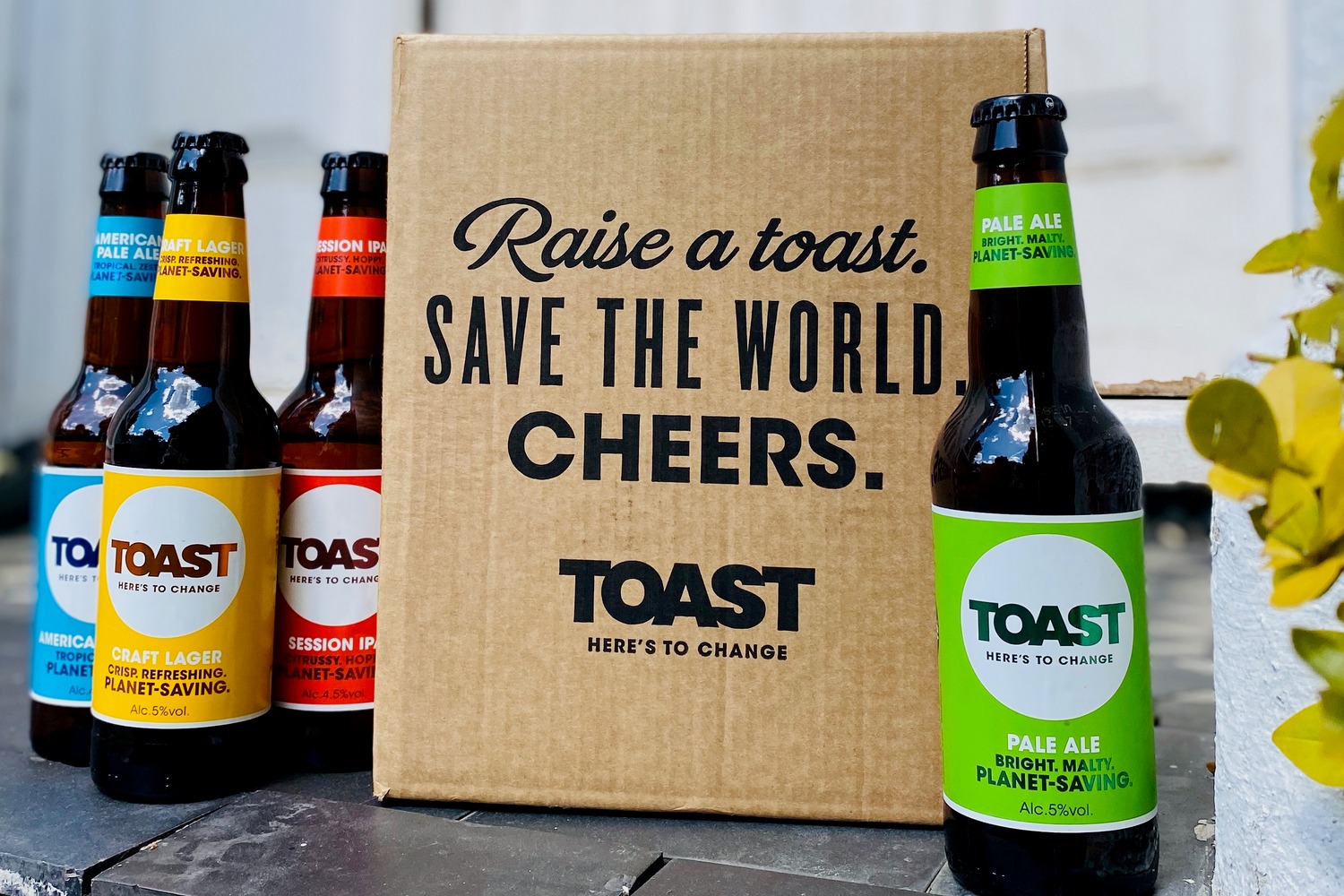Toast Ale has published its 2020 Impact Report that sets out how the business is leading a movement to change the planet over a pint.

Toast was the first UK brewery to become a certified B Corp in 2018 and has been recertified with the highest score of all UK breweries.
The report includes full details of the brewery’s carbon footprint. It has gone beyond compensating for its emissions by investing in UK regenerative agriculture, making it carbon neutral and nature positive.
Toast Ale became the first UK brewery to certify as a B Corp in 2018. To certify, businesses must demonstrate that they meet the highest standards of verified social and environmental performance, public transparency, and legal accountability to balance profit and purpose.
B Corps must recertify every three years. Toast’s impact report shares the result of the recertification process.
Fully transparent
The certification process involves an independent assessment of a company’s impact on its workers, customers, community and environment. Toast has set out its impact report to explain the work it is doing under each category.
Regenerative agriculture uses nature-friendly farming practices that include no tilling, fewer chemicals, year-long cover crops, and wildflower margins. These practices rebuild soil organic matter and restore biodiversity, resulting in carbon drawdown and improvements to the water cycle.
Louisa Ziane, Toast’s co-founder and chief operating officer, said: “We have been cautious not to make misleading statements about the environmental impact of our business. We leave a footprint on the planet, and we wanted to be fully transparent about the size of that footprint and the work needed to reduce it.
“We decided to not only compensate for those emissions, but to go much further and regenerate. So we’re investing in regenerative agriculture. As well as removing CO2 to make us carbon neutral, the enhancement of biodiversity means we can be nature positive. And ultimately, healthy soils are more nutrient rich, giving us better food (and beer).”



